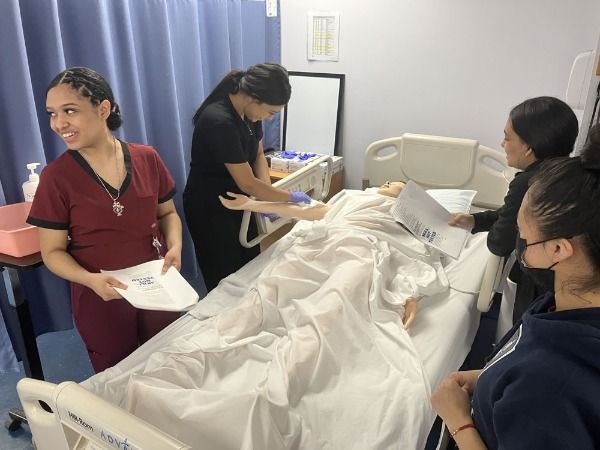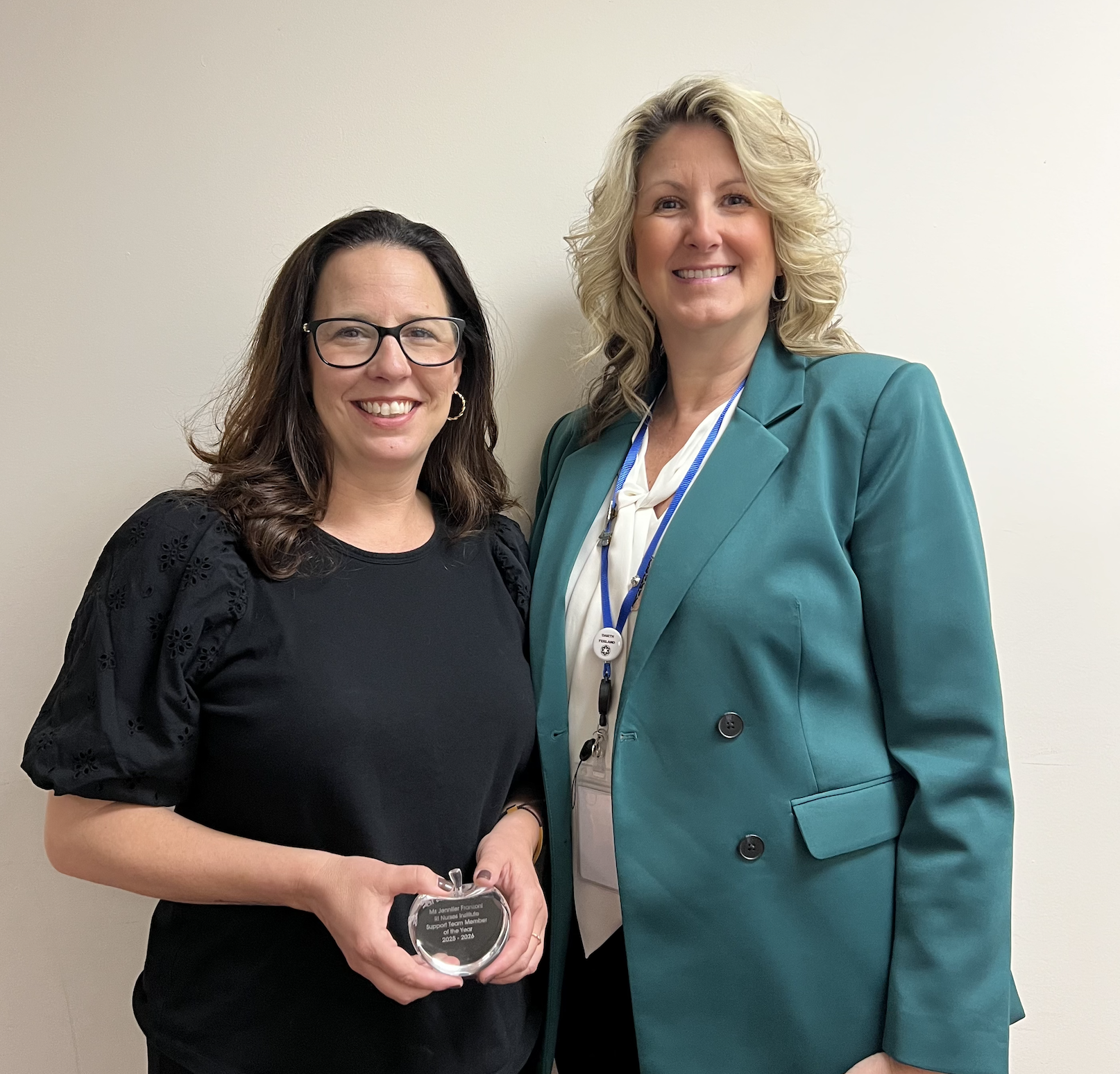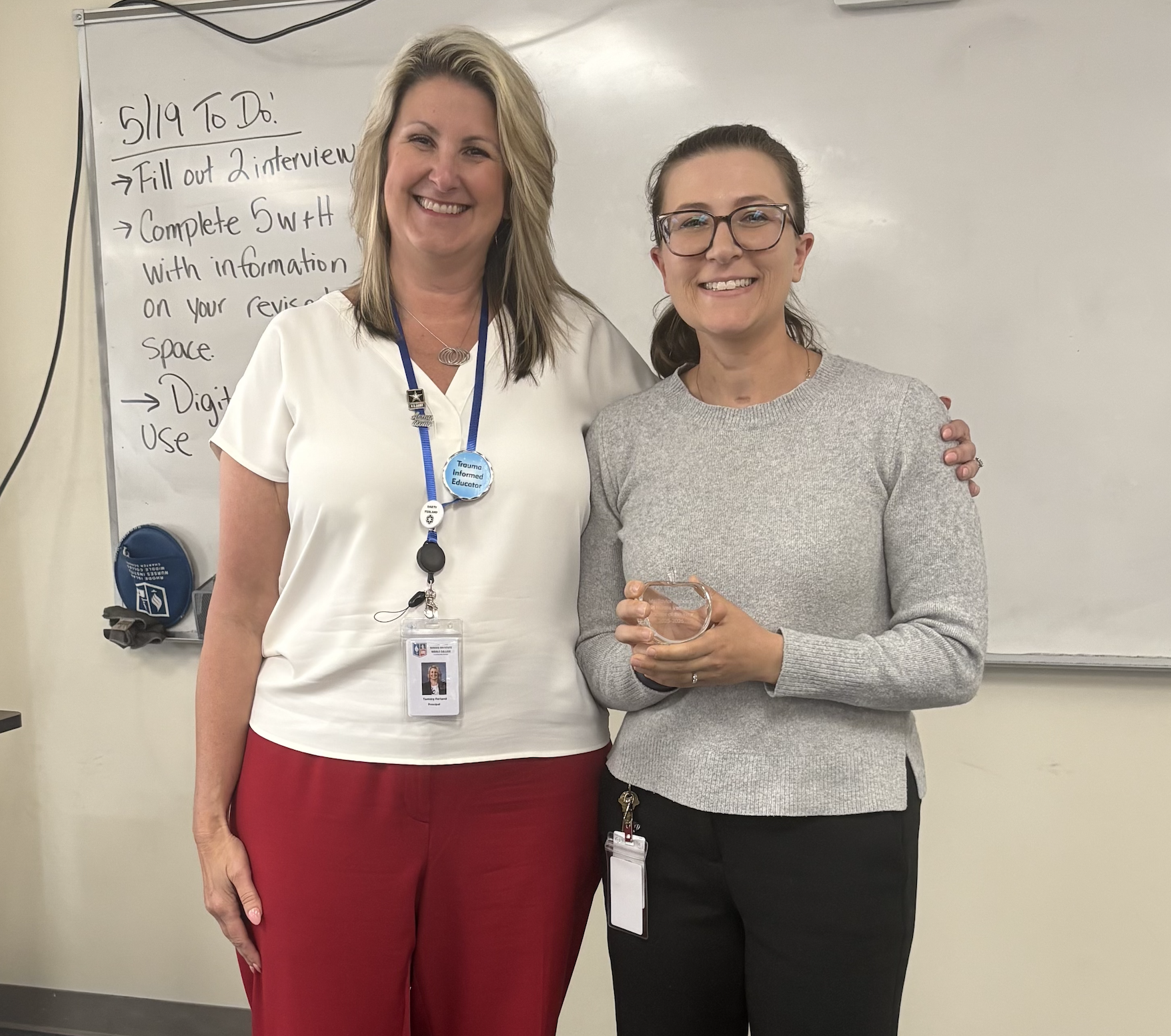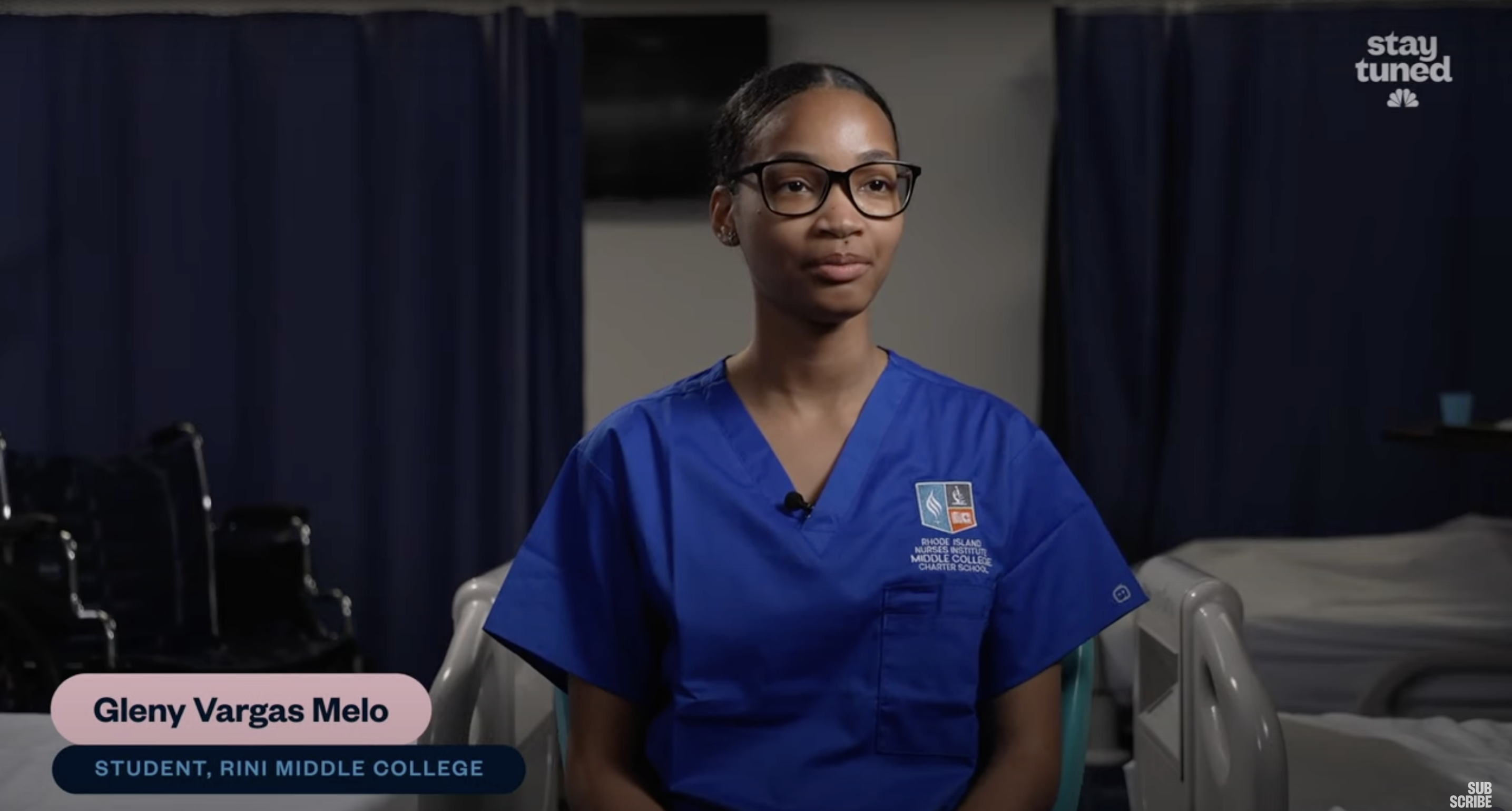
To Combat Nursing Shortage, Rhode Island Charter Turns to High School Students
11 December 2023
By Greg Toppo | July 19, 2023
Providence
When she was 6, Jasmine Alvarado was diagnosed with optic nerve glioma, a tumor located on the pathway between the eyes and brain. She spent years enduring painful chemotherapy and blood transfusions, but in the process developed a close relationship with a nurse on the hospital’s chemo floor.
“I could talk to her about anything,” Alvarado said, to the point that “right after they told me good or bad news, I’d always go to her and talk to her about it. She was like my little therapist.”
More than a decade later, Alvarado, now 17, is getting a rare chance to pay back that kindness before she leaves high school. A senior at the Rhode Island Nurses Institute Middle College Charter High School, Alvarado is on her way to a career in oncology nursing, with about half an academic year of college nursing credits under her belt and a certified nursing assistant license due in the mail — all before she graduates.
“Ever since I was little, I was like, ‘This is what I want to do,’ ” she said.
The school is the brainchild of Pamela McCue, a registered nurse who admits she didn’t even know what a charter school was when she launched one more than a decade ago. She just knew a Baby Boomer-driven nursing shortage loomed on the horizon.
The pandemic, of course, made the anticipated shortage worse.
An April 2022 analysis by researchers found that nearly 40 years of mostly steady growth in the supply of nurses was “under threat” from COVID burnout, frustration and early retirements. It estimated that the total nursing workforce had dropped by more than 100,000 from 2020 to 2021.
With the U.S. population diversifying, McCue also realized that if the next generation of caregivers was to look like the people they care for, communities would have to grow their own.
“The research is there,” she said. “Patients have better outcomes when they are cared for by nurses who are from their community.”
But when McCue looked at the nursing pipeline, the biggest barrier for students of color entering the field wasn’t their income or family background. It was the poor quality of their high school education. She thought: Let’s start there.
Reality kicks in
Many RINI students arrive having already experienced some of the worst aspects of the U.S. healthcare system.
At 7 years old, Gianna D’Amico, whose family emigrated from Colombia, regularly accompanied her aunt to doctor’s appointments; she served as translator, despite her own thin English vocabulary.
“I was like, ‘I don’t know how to say she had a rupture in something,’” D’Amico said with a little laugh. “I don’t know how to do that. I was like, ‘Oh, it broke. I don’t know!’”
Sometimes she’d miss school to keep her aunt’s weekday appointments. “But I couldn’t really help her,” said D’Amico, now in her junior year at RINI. “I was only 7.”
When it comes to helping patients, McCue noted that one of the largest factors affecting morbidity and mortality is medication error. If nurses can’t offer care in a patient’s native language, that puts the patient at risk.
Being bilingual is part of what inspired junior Gleny Vargas to pursue a career in neonatal nursing. Born in the Dominican Republic, she emigrated to the United States at age 8 and translated for family members at medical appointments.
“There’s a lot of Spanish-speaking individuals here, and I feel like me being able to speak their language is going to make them more comfortable,” she said.
A culture of care
The school now enrolls 399 students, the maximum its charter will allow. It occupies five stories of a historic brick office building in the heart of downtown Providence, where each morning students from 13 neighboring school districts show up in scrubs.
It uses its per-pupil allowance for charter schools in innovative ways: RINI has no library — thousands of paperback books sit on shelves scattered in hallways throughout the building — and it doesn’t offer sports or music. Students can pursue those interests at their neighborhood schools, and many do, jumping on city buses after school that take them to soccer games and track meets. The institute offers all students a free bus pass.
The school’s laser-like focus is perhaps its greatest strength, said Principal Tammy Ferland, a veteran educator who came to RINI from Cranston High School West, the state’s largest district.
“This is a health care program, a nursing program,” Ferland said. “If you don’t want to be a nurse, if you don’t want to be in health care, then you don’t belong here.”
That focus produces a school culture in which students demonstrably support and care for one another. One morning, sophomore E’Niyah Brown recounted how her father had recently died of heart failure and that she now struggles to keep her grades up while running track and holding down a part-time job. Senior Keilany Collazo leaned over and said, “You’re definitely going to make your father proud.”
Though she’s still reeling from the loss, Brown has her sights on becoming a cardiologist, remembering the reassuring words of her father’s heart doctor both before and after countless operations.
But the intense focus can also be a two-edged sword for students who, at age 14, aren’t ready to commit to a single discipline — or to 180 days of scrubs each year.
“When I first came here, I’m not gonna lie, I didn’t really like it,” said Brown. “I wasn’t going to stay that long. But my mom pushed me to just stay here because I want to be in the medical field.”
Ferland said many students experience something similar to what Brown did: They muddle through their first year or two. Teachers and administrators find themselves in a quiet, near-constant battle with first- and second-year students over wearing forbidden hooded sweatshirts into the building.
But around 11th grade, “reality kicks in” and they find a sense of purpose and responsibility. “In 11th grade, something just happens and this light bulb goes on with these kiddos,” she said. “It’s amazing to watch the professionalism that comes up.”
As if to demonstrate the shift, one recent morning as she strode the school’s narrow hallways, the principal took aside several students and gently reminded them about the no-hoodie dress code. As one student stripped off his blue sweatshirt over his head, Ferland remarked, sotto voce, “He’s a ninth-grader.”
Collazo, the senior, said the junior-year shift is real. “In 11th grade, I started realizing, ‘Like, I really need to get it together. I’m about to graduate!’ ”
Credits: By Greg Toppo | July 19, 2023
Other News Articles
-
08 October 2025
-
Message from Principal Ferland: It is with great pride that we announce this year’s District Teacher of the Year. This honor goes to a remarkable e…08 October 2025
-
In episode two of our Stay Tuned education series they venture to Providence at the Rhode Island Nurses Institute where we meet senior Gleny Vargas…08 July 2024



